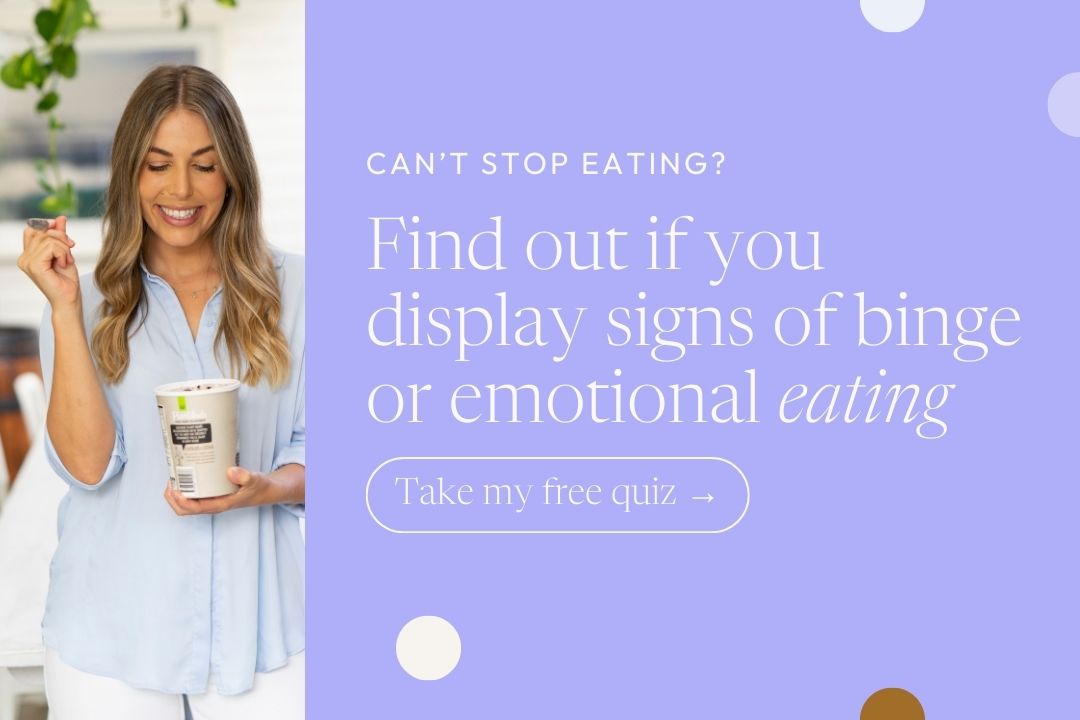If you’ve been on a diet before, you probably have a whole bunch of diet rules around alcohol that are percolating your brain. And it’s hard to know- is this actually a healthy habit?
Let’s flip the script on how diet culture influences our drinking habits. Debunk myths about sugar, explore global drinking norms, and break free from the usual rules.
“Juice has too much sugar, I might as well have wine”
A lot of people don’t want to reduce their alcohol intake because the alternative is just having sugary mocktails, soft drink or juice. We’ve been taught to fear sugar. That it is the problem. It’s toxic. But the truth is… sugar is NOT a toxin.
Sugar serves as fuel in our body. And that’s how our body perceives it. Our body recognises carbohydrates as a source of energy. While excessive sugar intake can lead to negative effects, the body fundamentally digests sugar without an immediate need to eliminate it.
In contrast, alcohol is unmistakably perceived by the body as a toxin. Regardless of how much you drink. Even small amounts of alcohol trigger an urgent response from the body to eliminate it quickly. Because it is recognised as harmful. And let’s not forget, the effects of alcohol on our health are widely acknowledged.
The Canadians know what’s up
Recently, the Canadians updated their drinking guidelines. Limiting alcohol intake to two standard drinks per week. Yet Australia still advises seven to 10 standard drinks per week considered within the healthy alcohol limit.
We need to keep up with new research which challenges alcohol’s social acceptance. And as we become more aware of the potential harm caused by alcohol, it’s time to rethink its place in a healthy lifestyle.
It’s crucial to note that this isn’t an all-or-nothing persepective. The idea isn’t to advocate for never drinking again. But rather to question the discrepancy in how sugar and alcohol are perceived.
Society tells us to avoid sugar at all costs. Yet the conversation around reducing alcohol consumption remains muted. The reality, as indicated by updated guidelines, suggests a need for a more balanced approach.
“Soft drink isn’t worth the calories”
In terms of calories, the contrast between alcohol and sugar is significant. Alcohol, almost pure in its form, contains nearly twice the calories per gram compared to sugar. With seven calories per gram in alcohol and four calories per gram in carbohydrates. Sure, choosing lower-calorie options is an option. But the impact on the body extends beyond just calorie count. From gut health to metabolism, sleep, mood and hunger hormones. It’s no secret that alcohol can have a major impact on our health.

Alcohol makes it harder to lose weight- and maintain a healthy weight
Ever found yourself ravenously hungry after a night out on booze? That’s because alcohol lowers impulse control, making us more prone to cravings. It also increases ghrelin levels (the hunger hormone) while slowing metabolism.
Our body prioritises digestion of alcohol, which it considers a toxin, before anything else. So storage of fat is far more increased, especially the fat around the abdominal area.
If none of your friends drank alcohol- would you drink?
So often we drink alcohol because everyone else does. Instead of asking ourselves- “What would I do if no one else was influencing me?”
The research is so clear about the fact that alcohol impact sour mood. The fear, judgment, shame, regret and the spiral we can go into the day after drinking. Worst part? These ill effects on mental health are long lasting. A month after you’ve drunk alcohol, you’re still experiencing the impact on your mental health, including anxiety.
We drink to combat poor self-esteem and stay stuck in the cycle of self-loathing. But what if you’re not the problem? What if alcohol is contributing to you not liking yourself? Which brings me onto the next topic…
The 90-Day Limit
If you get to 90 days without drinking alcohol, there are some amazing brain changes that happen. You start to notice improvements in your mood, self-control, sleep and skin. I have a whole blog post on what happens to your body when you stop drinking alcohol which you can find here.
And perhaps for the first time in your adult life you get to 90 days, you might have a light-bulb moment of “Oh, wow. So this is what it’s like not drinking alcohol”.
Now if you’re left wondering..
- “But how am I still going to be fun or socialize?”
- “How can I drink less and then not binge drink when I start drinking alcohol again?”
- “How would I explain to people that I’m not drinking alcohol?”
- “How do I go on a break from booze without feeling deprived?”
Well my friend, this is why the legendary Maz Compton and I created the Booze Break audioguide. It’s kind of like a podcast, but better. Consisting of 15 bite-sized episodes and bonuses to help you learn how to relax and unwind without a glass of wine.
It’s just a booze break, not a life sentence. Click here to listen to the first free episode.